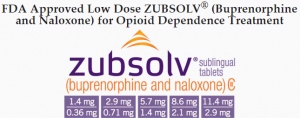Tramadol Treatment and Opiate Rehab

Tramadol is an opioid drug that carries with it high risks to be habit forming by the user if used for an extended period of time or is abused in excess use. Tramadol treatment and rehab options are available for those users who find themselves addicted to the drug. Keep reading to learn more about Tramadol’s effect on the body, how it becomes habit forming and what to do to seek treatment for a potential Tramadol addiction.
What is Tramadol?
Tramadol is an opioid medication that is used to help treat severe and moderate pain, usually after a patient undergoes surgery or a major medical procedure. However, there are occasions when an extended-release version of Tramadol is prescribed to help those suffering from moderate and severe chronic pain. The opioid drugs work by connecting to receptors in the brain to control the body’s central nervous system reaction to pain. By inhibiting these receptors, the body is able to change how it experiences pain by producing a euphoric reaction instead. These feelings of euphoria not only help a patient control pain, but can become habit forming. Like other opioid drugs, a person may become mentally and physically dependent on the drug and find they need higher and more frequent dosages to achieve the same effect.
Tramadol Addiction Signs:
As previously mentioned, Tramadol addiction can occur in patients who misuse the drug and those who use the drug for recreational use. Tramadol addiction can be serious and can lead to cases of overdose and respiratory failure in those who abuse it or use it for a prolonged period of time.
Addiction signs include:
- Needing a higher dose to achieve the same level of pain management or euphoric result.
- Feeling agitated or irritable if you are unable to take the drug.
- Needing the drug to function through a typical day.
- Experiencing depression and anxiety.
- Finding ways to take the drug without others knowing.
- Taking too much of the drug too frequently.
- Spending money in excess on the drug without prescription or not as directed by a healthcare professional.
- Experiencing withdrawal symptoms if unable to take the drug.
Tramadol Treatment Options:
In addition to slow weaning from the drug, supervised assistance by medical professionals and rehab options, there are medications used to help those who are addicted to drugs like Tramadol.
The United States Federal Drug Administration has recently released a new opioid treatment drug that is available to those struggling with a Tramadol addiction. The drug is called Zubsolv and is similar to Subutex and Suboxone – also used to help those struggling with opioid addictions. Zubsolv combines buprenorphine and naloxone.
It works as a tablet dissolved under the tongue and is used as a maintenance drug to help those with opioid dependence. It should be used in combination with psychosocial and counseling support, according to the FDA. Zubsolv works to help the patient achieve recovery with a drug that does not need to be taken as often or as long as other opioid and Tramadol treatment medications.
Tramadol Rehab Facilities:
Opioid addiction can vary by severe. Depending on the level of addiction, the user may find different rehabilitation options more beneficial than others.
Inpatient rehabilitation options:
There are many drug rehabilitation centers throughout the country. Some of these are more expensive than others, but for those in need of intensive therapy and treatment, inpatient care can be beneficial to help the user overcome the drug addiction quickly. Some programs last for 30 days and some are longer. One of the biggest benefits to an inpatient treatment program is constant medical supervision as the user undergoes the withdrawal symptoms – some of which can range from uncomfortable to medically serious depending on the individual and the level of drug addiction.
Outpatient rehabilitation options:
For those who are facing a lesser addiction or simply cannot afford to leave their homes and jobs for an inpatient treatment center rehabilitation option, outpatient drug rehab can be helpful. The user can attend regular counseling and psychotherapy sessions to help them achieve recovery success. Outpatient programs often also provide medical support to help the user overcome withdrawal symptoms during the drug detox process. Outpatient treatment programs might also be more affordable.
On-going support:
Regardless of what type of rehab options, you choose, on-going support is crucial in keeping the user on that road to recovery. Programs like Narcotics Anonymous and other types of drug addiction counseling are instrumental in helping the user stay off drugs like Tramadol and other opioid medications. Those who have used and abused opioid medications might go back to their old ways and might turn to other medications to fulfill their addiction needs. However, staying active with an on-going support community can help them stay clean.
If you or someone you know is addicted to Tramadol, it is important to speak with a healthcare provider right away. Doctors who prescribe Tramadol to help the patient with moderate to severe pain or chronic pain issues also have methods of weaning a person off the drug and can help them find more comprehensive treatment options for a Tramadol addiction, if outside assistance is needed.
Sources:
Sources: www.rxlist.com/
www.medpagetoday.com/
www.ncbi.nlm.nih.gov
Drugfree.org






